Lesson 4 – Transparent and not Transparent
Ok, let me explain what is important to know about transparent and not transparent because we have:
- Transparent/not transparent skin type
- Transparent/not transparent techniques in PMU
- Transparent/not transparent colors of pigments
So let’s speak about it
Let’s speak about one difficult casework with very thick and not transparent skin type ☝🏻
I think you met client when you work with them and they come back with NO color like you did nothing, absolutely nothing🙅🏻🤦🏻♀🤷🏻♀
It’s not often but sometimes it can happen, so let me explain why and how to see that type of skin and be ready for them 👍🏻
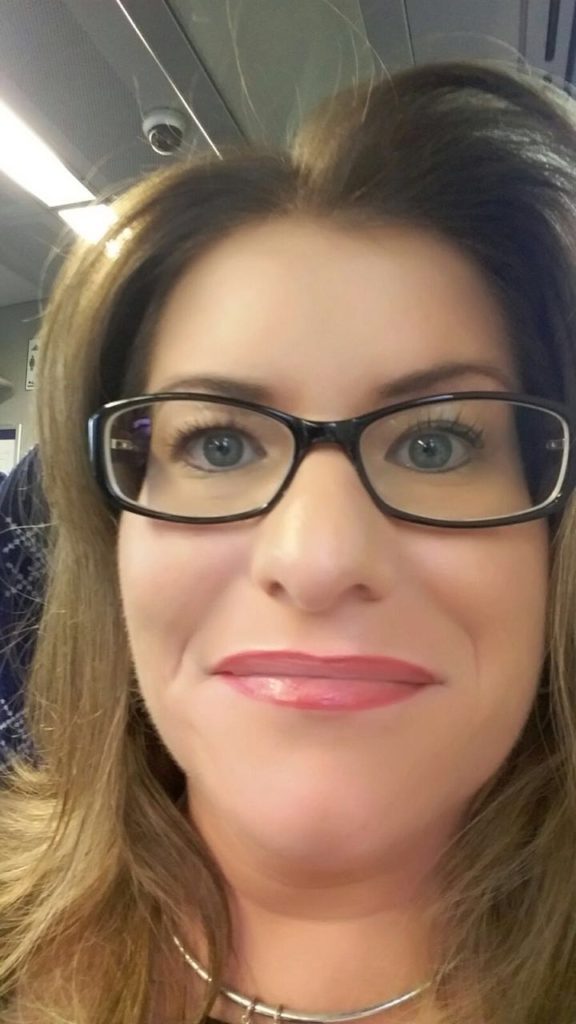
This is the case of my student, she did her lips outliner and it healed like this
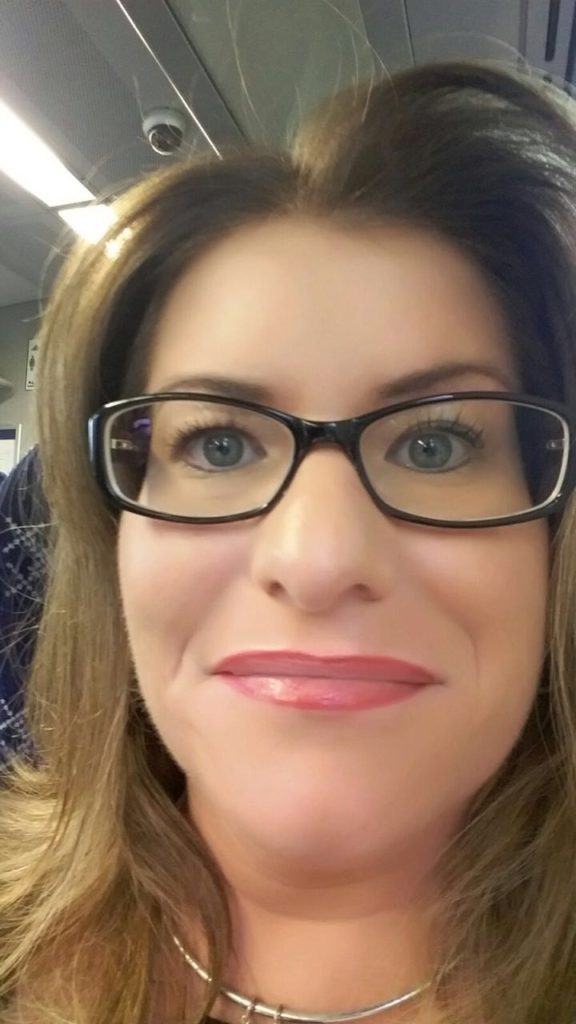
She was working by a transparent technique that I teach – 1 point needle and transparent pigment without dioxide titanium and you see the result.
For this skin type, we need to choose a different technique, the old school of pmu, slow circular movements, group needle-like 3RL or 5RL, slow speed of machine and ☝🏻 pigment with dioxide titanium (white), not transparent pigment, because only this pigments can give you visible color after healing.
- This is a video how to work with circular movements
And this is a good example of this technique, it’s not my video
But this technique is exactly what we need for the not transparent skin type, circular or back and force movements
Choose group needle 👍🏻 by group needle it’s not possible to work to deep if you see blood change angle of your machine it will help you to work more surface and if it doesn’t help take bigger group needle-like 5round or 7round.
And now I’ll try to explain how to see this type of skin and choose the right technique in the first procedure 👍🏻
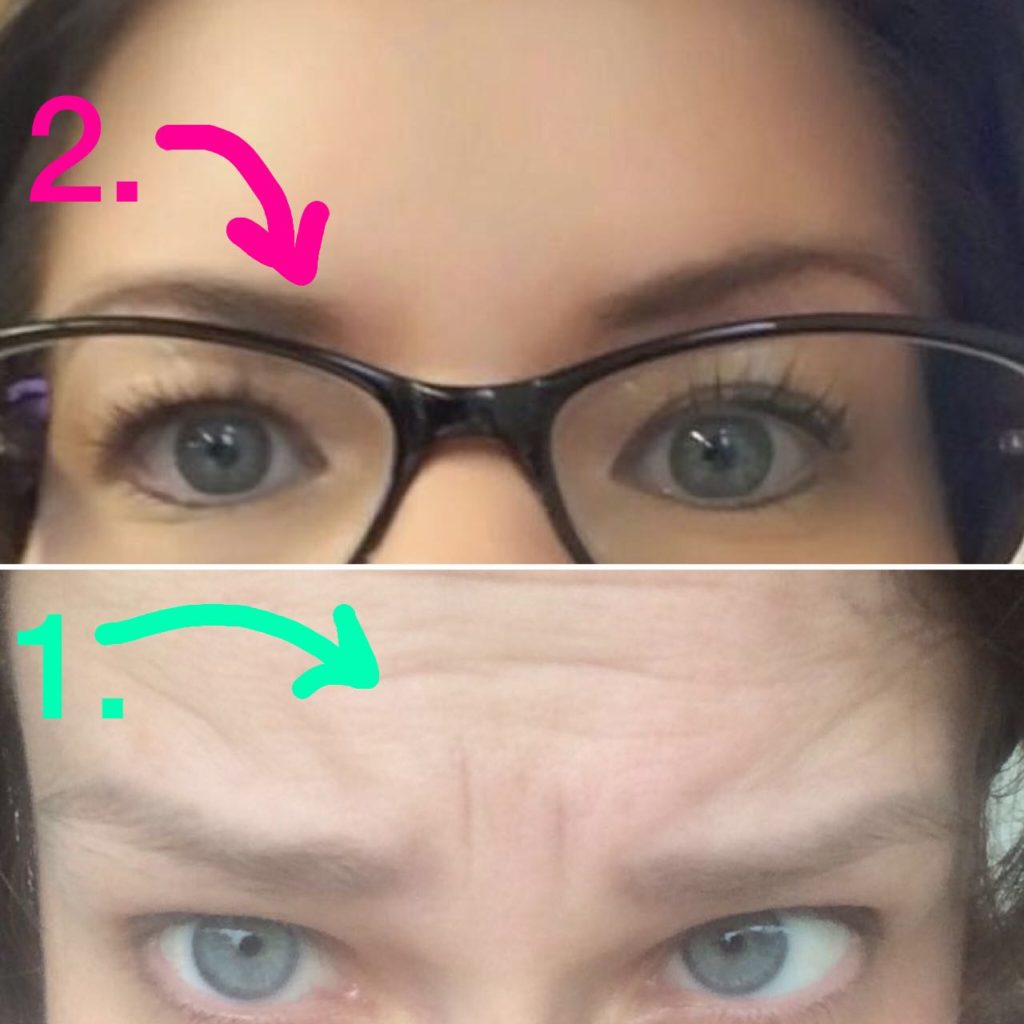
- Wrinkles, not transparent skin is very rich in collagen and that’s why they don’t have a lot of little wrinkles
And transparent skin has much more little one
- Hair ❗ it’s a very simple indicator, not transparent skin type usually have very thick and strong hair of eyebrows if you can see this, be sure we need to work and put very dense color.
Transparent skin has very soft and tiny hair.
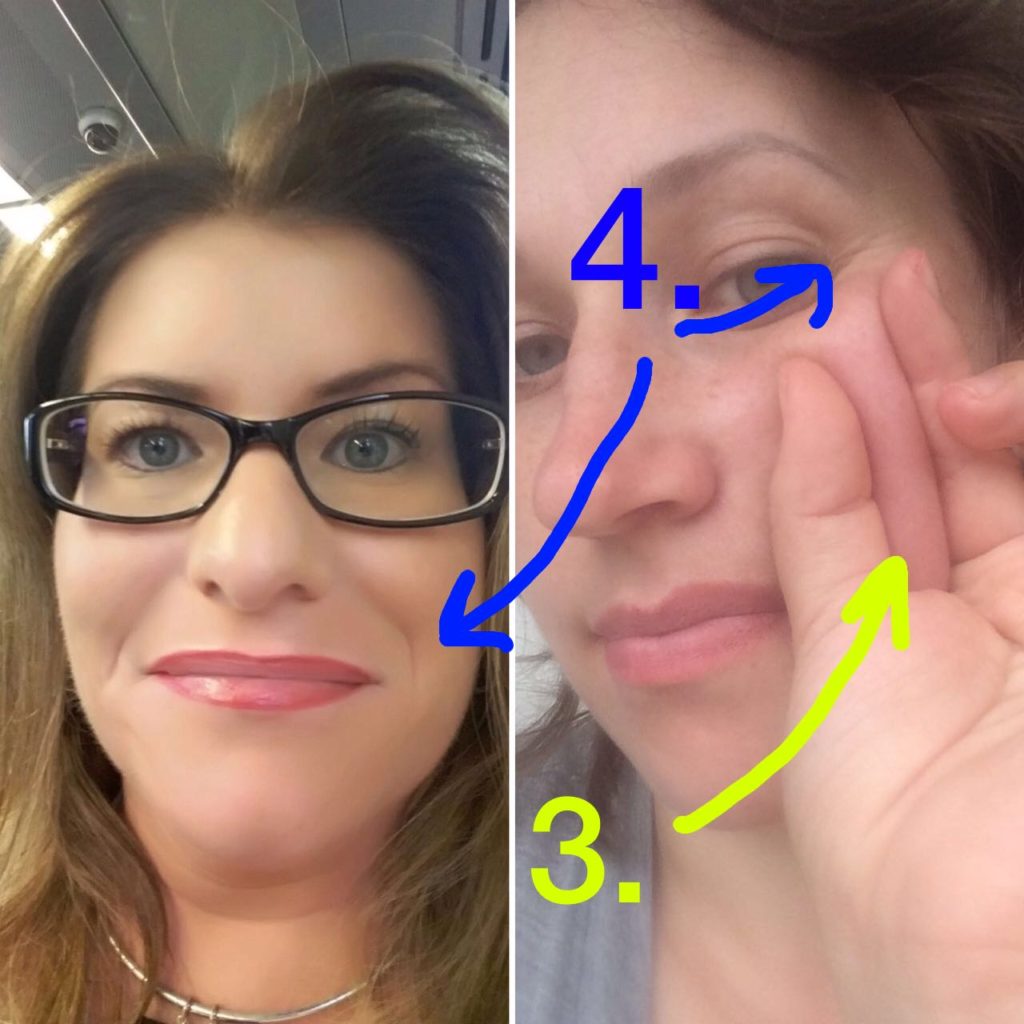
3. If you will try to pinch the skin transparent skin is very soft and easy to pinch and not transparent skin is strong 💪🏻 and not so easy to pinch it
4. One more time about wrinkles not transparent skin with age get deep and lots of numbers wrinkles and transparent skin has many and it starts very earlier by age but they are not so deep
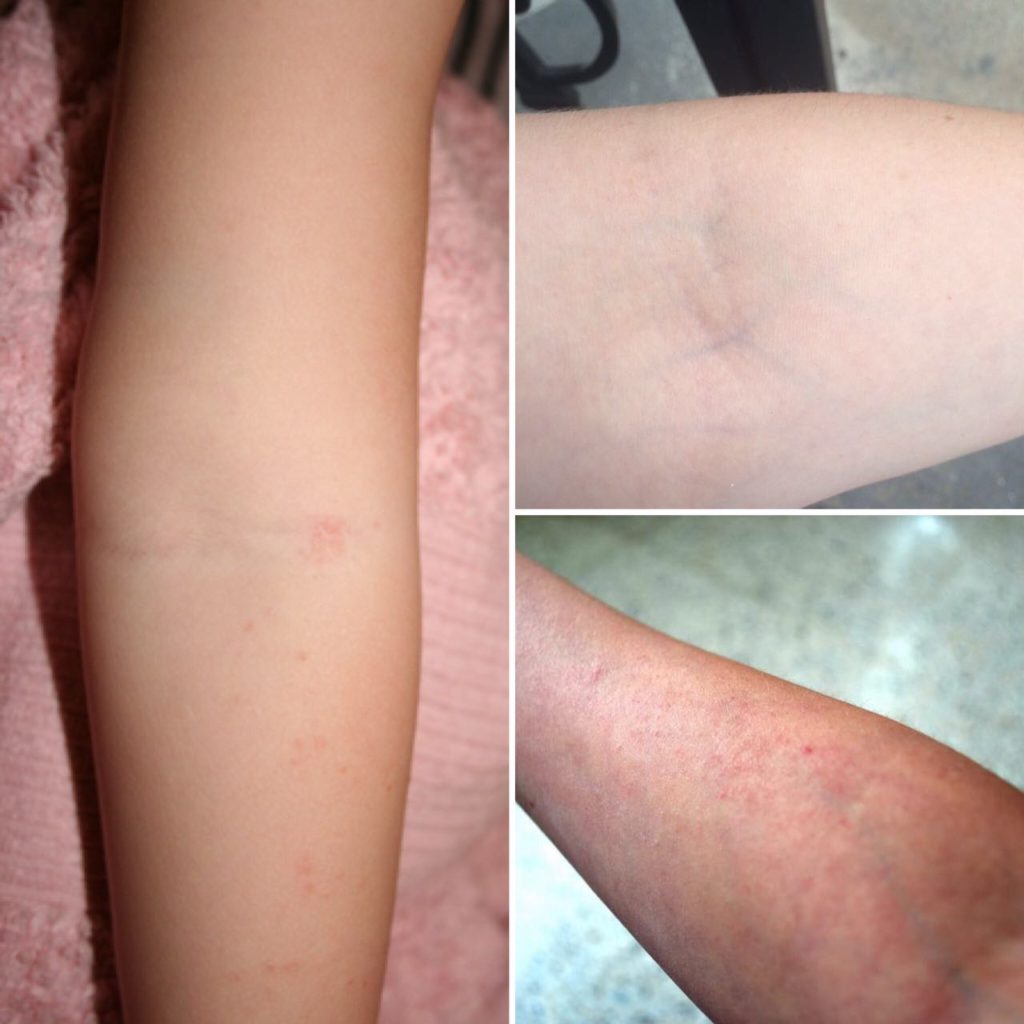
If you will look on the arm you can see blood vessels very well for the transparent skin and for not transparent skin it’s not so visible
So one more time if you see this type of skin ☝🏻 don’t waste your time for transparent technique👍🏻
I hope it will help you dear colleagues 👍🏻💪🏻🤗
For the eyebrows, it can be the same problem especially for clients without hair, because scab fall down to quick
Look at this case
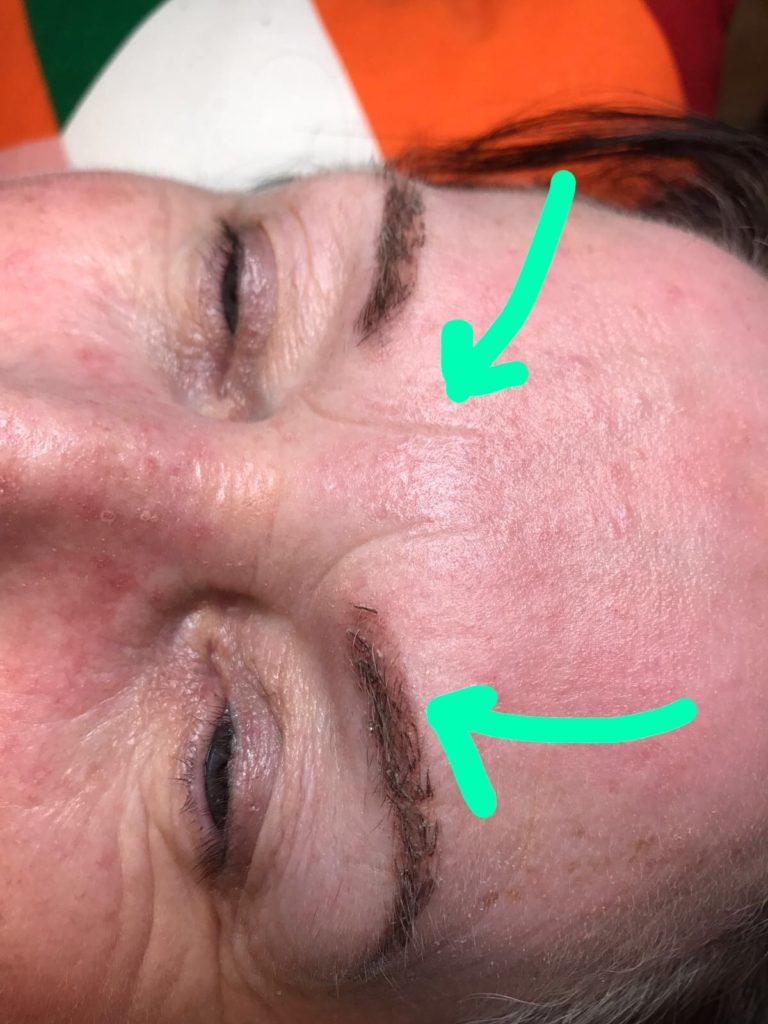
Case of my student, the skin is a good example of not transparent, wrinkles are deep and not lots of them, the hair on her brows is thick and strong
In this skin type, I recommend using techniques which can give you dense, not transparent color like
– machine shading with slow/short movements or even circular movements, with group needle 3RL or 5RL
– dots technique combine with manual shading
I DON’T recommend using
– 1 point soft powder
– any techniques with fast pendulum movements like soft powder or ombré
– microblaiding
Here the healed result after one procedure of dots and manual shading technique
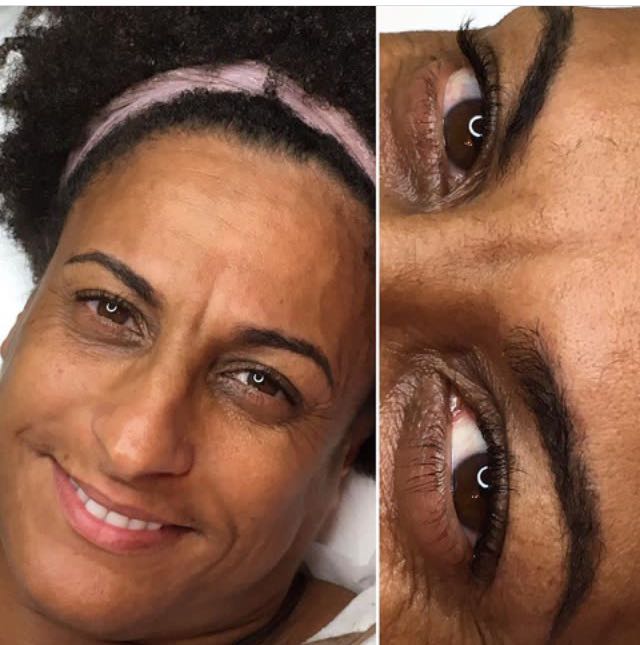
So soft powder is transparent technique, it’s airy so if to tell generally I don’t recommend this technique for the thick skin type, density is not enough in my opinion 👍🏻
